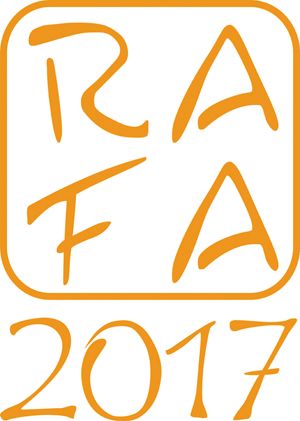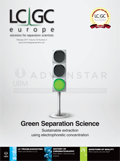RAFA 2017: 8th International Symposium on Recent Advances in Food Analysis (RAFA 2017)
The 8th International Symposium on Recent Advances in Food Analysis (RAFA 2017) will take place in Prague, Czech Republic, on 7–10 November 2017.

The 8th International Symposium on Recent Advances in Food Analysis (RAFA 2017) will take place in Prague, Czech Republic, on 7–10 November 2017.
The RAFA organizers, the University of Chemistry and Technology, Prague (UCT Prague, Czech Republic), and RIKILT, Wageningen University & Research (The Netherlands) would like to invite food scientists from academia and industry, and representatives of national and international agencies, control authorities, governmental and commercial laboratories to attend this event.
RAFA has grown since the conference was launched in 2003. The previous two events were attended by 800 participants from more than 60 countries of Europe, Asia, America, Australia, and Africa, and supported by more than 50 sponsors, exhibitors, and media partners.
The RAFA 2017 symposium will provide an overview of contemporary trends in analytical and bioanalytical strategies in food quality and safety control and discuss challenges for novel approaches. The following recent and emerging issues will be addressed by RAFA 2017 sessions: authenticity and food fraud; bioactive compounds; flavour significant compounds; “omics” including “foodomics”; food forensics; nanoparticles in food; novel foods and supplements; organic crops and foodstuffs; QA/QC and chemometrics and data interpretation; allergens; industrial contaminants; metals and metalloids; mycotoxins, marine, and plant toxins; packaging contaminants; processing contaminants; pesticide residues; and veterinary drug residues
The conference programme will be accompanied by several satellite events alongside workshops, seminars, and tutorials on novel analytical strategies, including workshops on “Vibrational Spectroscopy and Chemometrics for the Monitoring of Food and Feed Products and Contaminants Detection” and “Analysis of Nanoparticles in Food, Cosmetics, and Consumer Products” and “Human Biomonitoring of Food”. Other sessions include: “Smart Portable Food Analysis Systems and Citizen Science” and “Data Quality and Smart Data Handling in Food Analysis”. There will also be an opportunity to enhance your knowledge of mass spectrometry at the RAFA Mass Spectrometry School.
An interactive seminar will discuss “Sample-prep, Separation Techniques, and Mass Spectrometric Detection in Food Quality and Safety: Step by Step Strategies for Fast development of Smart Analytical Methods”. The Reference Laboratories Colloquium will include a workshop on “Experiences, Achievements, and Challenges Addressed by EU Reference Laboratories”.
An open day on food integrity will focus on the latest developments and strategies in safety, quality, authenticity, and traceability and the HORIZON 2020 session will discuss the collaboration challenges within the EU framework programme for research and innovation.
An exhibition of modern instruments, laboratory equipment, reference materials, and consumables used in food analysis will be an important part of the symposium, alongside the featured vendor seminars.
A platform for young scientists will be offered to present their scientific work; typically 20% of the contributed oral presentations is assigned to the next generation. Also a number of RAFA 2017 Student Travel Grants will be provided. The best poster presentation(s) by a young scientist(s) will be awarded with the prestigious RAFA Poster Award and sponsored poster award(s).
Deadline for submission of an abstract for oral presentation is 15 July 2017; deadline for registration at a reduced fee is 31 July 2017; and deadline for submission of an abstract for poster presentation is 31 August 2017.
E-mail:rafa2017@vscht.cz
Website: www.rafa2017.eu

New Study Reviews Chromatography Methods for Flavonoid Analysis
April 21st 2025Flavonoids are widely used metabolites that carry out various functions in different industries, such as food and cosmetics. Detecting, separating, and quantifying them in fruit species can be a complicated process.
Analytical Challenges in Measuring Migration from Food Contact Materials
November 2nd 2015Food contact materials contain low molecular weight additives and processing aids which can migrate into foods leading to trace levels of contamination. Food safety is ensured through regulations, comprising compositional controls and migration limits, which present a significant analytical challenge to the food industry to ensure compliance and demonstrate due diligence. Of the various analytical approaches, LC-MS/MS has proved to be an essential tool in monitoring migration of target compounds into foods, and more sophisticated approaches such as LC-high resolution MS (Orbitrap) are being increasingly used for untargeted analysis to monitor non-intentionally added substances. This podcast will provide an overview to this area, illustrated with various applications showing current approaches being employed.

.png&w=3840&q=75)

.png&w=3840&q=75)



.png&w=3840&q=75)



.png&w=3840&q=75)







